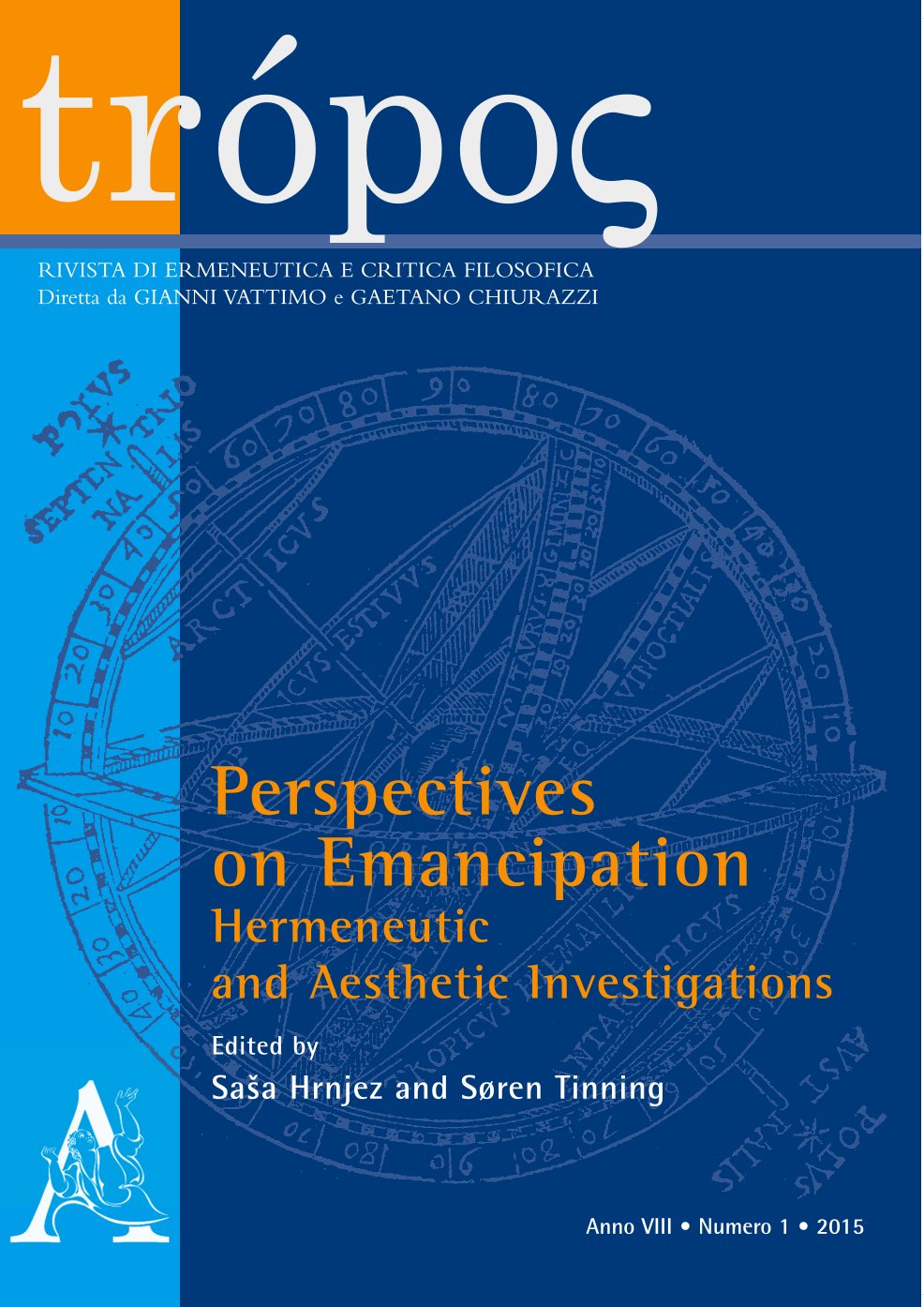Nostalgic Freilassen
Emancipation beyond Empowerment
DOI:
https://doi.org/10.13135/2036-542X/7962Keywords:
Heidegger, Nostalgia, Gelassenheit, Letting-be, Setting-freeAbstract
Postmodern hermeneutics strongly opposes itself to Heidegger’s alleged anti–modernism. This opposition is found in the weak thought developed by Vattimo and Caputo, and in this article I will argue that their dismissal of Heidegger’s nostalgia relies on a problematic distinction between Heidegger’s progressive, leftist non–foundationalism and his rightist, nostalgic eschatology. This distinction is problematic for two reasons: Firstly, it overlooks the crucial link between Heidegger’s notion of belonging (Zugehörigkeit) and attunements (Stimmungen) that provides Heidegger’s nostalgia with a hermeneutic importance, and, secondly, it assumes that Heidegger actually wants to return to a time prior to metaphysics, whereby it fails to take into account the late Heidegger’s critique of the metaphysics of the will. These two points I take to be defining for the affectivity central to Heideggerian hermeneutics and, consequently, to be crucial for any hermeneutics with emancipatory ambitions. If weak thought is still embedded in the metaphysics of the will, we must strive to make it even weaker by considering the Heideggerian terms Freilassen and Gelassenheit, which will reveal that nostalgia is not politically dangerous but, rather, emancipatory insofar as it seeks to free a different mode of experience beyond the willful metaphysics of Gestell.



